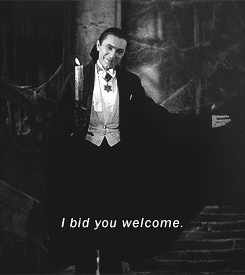Welcome To My Page
Welcome to my page

Hi everyone I'm Monst3rT3ddy or T3ddy/ Monst3r
I use he/him and the occasional it/it's.
I post whatever I think of or just repost stuff I think is cool and whatever. I like scene/ emo/ 2000's-2010's things and various alternative things like metal and Gothic music/things. I love love LOVE old horror movies and books.I also skate even though I'm not good at it lol.
Don't interact:
Homophobic
Transphobic
Trump supporter
Zionist
Racist
Hurt animals
sexist/misogynist
Judge people for using neo pronouns or a therian
Very sleepy, very nerdy, very weird. Born to be a vampire forced to be a weird boy. I will talk your ear off about anything I find interesting so be warned>:3
Always up to chat c|:
That's it, see ya!
Ps. (Pinhead call me ❤️)
More Posts from Monst3rt3ddy and Others
And now we wait
Oh no I hope a music loving nerd with glasses, a big nose, and long hair doesn't hmu ooooh noooooooo

bet

support trans people.

Da best gender ( ≧ᗜ≦)






























“horror movies of the 1980s exist at the glorious watershed when special visual effects finally catch up with the gory imaginings of horror fans and movie makers. technical advances in special effects (animatronics, liquid and foam latex) meant the human frame could be distorted to grotesque new dimensions on screen. 1980s horror movies delivered the full colour close-up, look-no-strings-attached, special effect in a way that previous practitioners of the art could only dream about. everything lurking in the shadows in older horror movies was now dragged into the garish light of day. the monsters were finally out of the closet.”
Had a few folks interested in how I made the patches I posted for Solarpunk Aesthetic Week, so I thought I'd give y'all my step-by-step process for making hand-embroidered patches!

First, choose your fabric and draw on your design. You can use basically any fabric for this - for this project I'm using some felt I've had lying around in my stash for ages.

Next, choose your embroidery floss. For my patches I split my embroidery floss into two threads with 3 strands each, as pictured. You can use as many strands in your thread as you prefer, but for the main body of my patches I prefer 3 strands.
Next you're going to start filling your design using a back stitch.

First, put in a single stitch where you want your row to start.

Poke your needle up through the fabric 1 stitch-length away from your first stitch.

Poke your needle back down the same hole your last stitch went into so they line up end-to-end.
Repeat until you have a row of your desired length (usually the length of that colour section from one end to the other). Once you have your first row, you're going to do your next row slightly offset from your first row so that your stitches lay together in a brick pattern like this:

Make sure your rows of stitches are tight together, or you'll get gaps where the fabric shows through.
Rinse and repeat with rows of back stitch to fill in your patch design.

When you're almost to the end of your thread, poke your needle through to the back of the fabric and pull the thread under the back part of the stitching to tuck in the end. Don't worry if it looks messy - no one's gonna see the back anyway.
This next step is fully optional, but I think it makes the patch design really pop. Once your patch is filled in, you can use black embroidery floss to outline your design (or whatever colour you want to outline with - it's your patch, do what you want). I use the full thread (6 strands, not split) of embroidery floss to make a thicker outline.

I use the same back stitch I used to fill the piece to make an outline that adds some separation and detail. You could use most any 'outlining' stitch for this, but I just use back stitch because it's just easier for me to do.
Once you're finished embroidering your patch, it's time to cut it out!

Make sure to leave a little border around the edge to use for sewing your patch on your jacket/bag/blanket/whatever, and be careful not to accidentally cut through the stitches on the back of the patch.
If you have a sturdy enough fabric that isn't going to fray, you can just leave it like this. If not, I recommend using a whip stitch/satin stitch to seal in the exposed edges (I find that splitting your embroidery floss into 3-strand threads works best for this).

And then you're done! At this point you can put on iron-on backing if you want, or just sew it on whatever you wanna put it on. Making patches this way does take a long time, but I feel that the results are worth it.
Thanks for reading this tutorial! I hope it was helpful. If anyone makes patches using this method, I'd love to see them! 😁
guys I love Bowser Jr so much. He's my little boy, my son, my sweet cheese, my good time boy. I want to be a father to him

Gay people will develop mental issues and make AT LEAST one of these movies their whole personality











staying strong
-
 z0mbiebrid3 liked this · 2 months ago
z0mbiebrid3 liked this · 2 months ago -
 happilydangerousworld liked this · 6 months ago
happilydangerousworld liked this · 6 months ago -
 monst3rt3ddy reblogged this · 10 months ago
monst3rt3ddy reblogged this · 10 months ago

